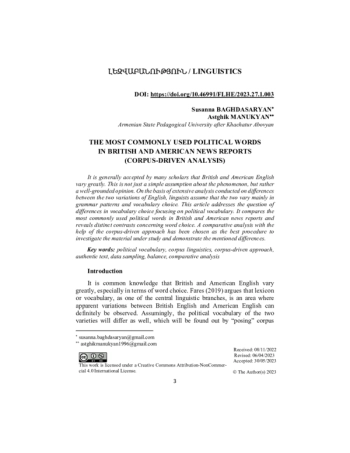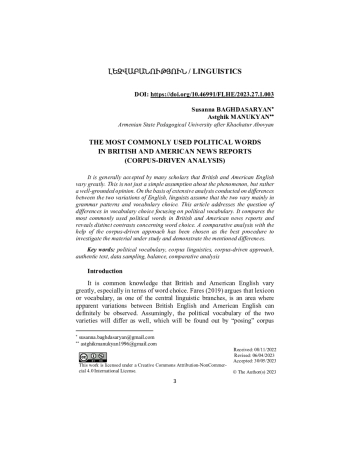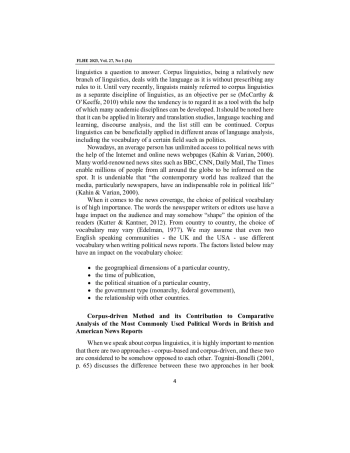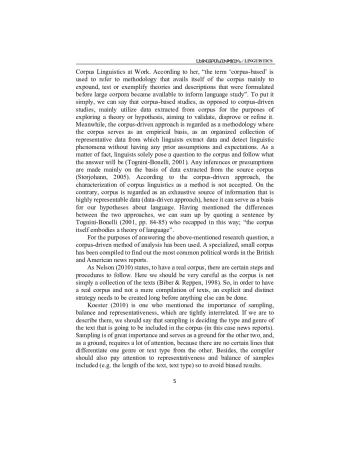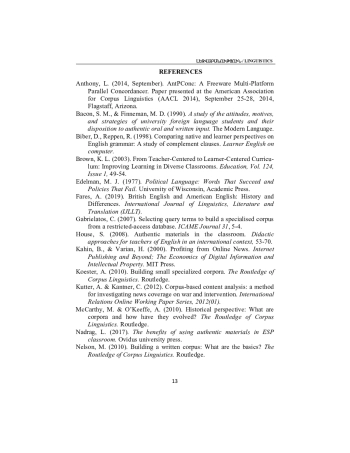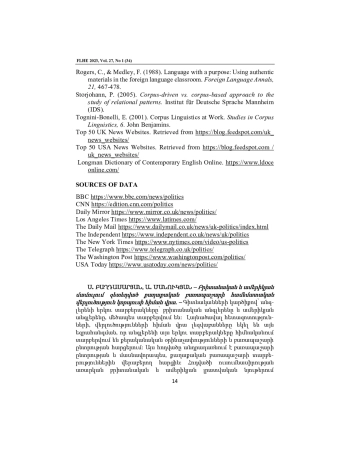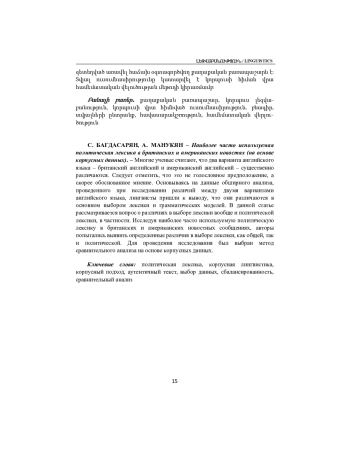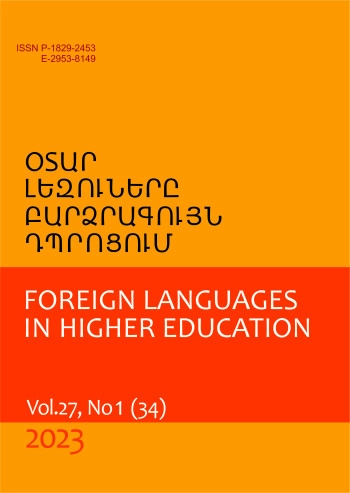It is generally accepted by many scholars that British and American English vary greatly. This is not just a simple assumption about the phenomenon, but rather a well-grounded opinion. On the basis of extensive analysis conducted on differences between the two variations of English, linguists assume that the two vary mainly in grammar patterns and vocabulary choice. This article addresses the question of differences in vocabulary choice focusing on political vocabulary. It compares the most commonly used political words in British and American news reports and reveals distinct contrasts concerning word choice. A comparative analysis with the help of the corpus-driven approach has been chosen as the best procedure to investigate the material under study and demonstrate the mentioned differences.
Сайт https://scinetwork.ru (далее – сайт) работает по принципу агрегатора – собирает и структурирует информацию из публичных источников в сети Интернет, то есть передает полнотекстовую информацию о товарных знаках в том виде, в котором она содержится в открытом доступе.
Сайт и администрация сайта не используют отображаемые на сайте товарные знаки в коммерческих и рекламных целях, не декларируют своего участия в процессе их государственной регистрации, не заявляют о своих исключительных правах на товарные знаки, а также не гарантируют точность, полноту и достоверность информации.
Все права на товарные знаки принадлежат их законным владельцам!
Сайт носит исключительно информационный характер, и предоставляемые им сведения являются открытыми публичными данными.
Администрация сайта не несет ответственность за какие бы то ни было убытки, возникающие в результате доступа и использования сайта.
Спасибо, понятно.